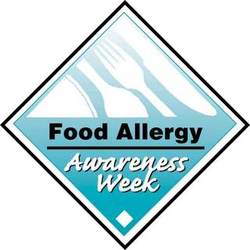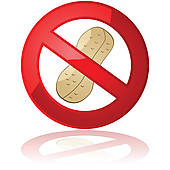Management and Support of Students With Severe Allergies

Arlington Public Schools (APS) aims to provide a safe, academically enriching, and socially accepting setting for all students. The following guidelines specifically address the needs of students who live with life-threatening food allergies.* All APS schools are encouraged to implement these evidence-based recommendations, which outline prevention and response protocols. In addition, in an effort to promote the school system’s emphasis on wellness and health, these guidelines stress the avoidance of using food as a reward and/or celebratory focal point in the classroom.
Most importantly, APS recognizes the power of raising awareness and promoting prevention. Educating our students, staff and school communities about food allergies creates a safer and more supportive learning environment thereby giving all our students the confidence to thrive academically.
* While this document focuses on food allergies, treatment of anaphylaxis (a lifethreatening allergic reaction) is the same whether caused by insect sting, latex, or exercise-induced.
Most importantly, APS recognizes the power of raising awareness and promoting prevention. Educating our students, staff and school communities about food allergies creates a safer and more supportive learning environment thereby giving all our students the confidence to thrive academically.
* While this document focuses on food allergies, treatment of anaphylaxis (a lifethreatening allergic reaction) is the same whether caused by insect sting, latex, or exercise-induced.
|
TABLE OF CONTENTS
I. Purpose II. Caring for Students with Food Allergies in Schools A. Food Allergy Basics and Statistics B. Common Food Allergens C. Definition of Anaphylaxis III. Planning A. What Parents Need to Know and Do Before School Starts B. Individualized Health Care Plans and 504 Plans IV. Prevention Expectations A. Classrooms B. Specials (Physical Education, Music, etc.) C. School Field Trips D. Transportation – School Bus E. Food Services F. Lunch Room G. Special Activities Held During School Hours H. Activities Held After School Hours • Sports • PTA-Sponsored Special Events • PTA Enrichment and Clubs • Extended Day V. Emergency Procedures A. Response to Emergency B. Follow-Up/Investigation of Exposure Incident C. Student’s Return to School VI. Appendices Appendix A: Responsibilities of Specific Individuals • Parent • School Administrator/Designee • Classroom Teacher • Public Health Nurse (PHN) • School Health Aide (SHA) • Student Appendix B: Forms • Physician Order/Severe Allergy Action Plan • Screening Allergy Questionnaire Appendix C: Sample Letters • Teacher Letter to Classroom Parents • Notice to Substitutes/Volunteers • Notice to Special Staff (Art, Music Teachers, etc.) Appendix D: Sample Classroom Signs Additional Samples >> Appendix E: Epinephrine Administration Tutorial Appendix F: Alternative Celebration Ideas Appendix G: APS Food Allergy FAQs Appendix H: APS Hand Washing Policy Appendix I: References
|
PURPOSE
In the United States, more than six million children – or roughly two students per classroom, have a potentially life-threatening food allergy. Studies indicate that 16-18 percent of these known food-allergic students have had a reaction in school. In addition, approximately 25 percent of reactions in the school setting involve a student who has not yet been diagnosed with a food allergy. In an effort to raise awareness and promote prevention practices throughout Arlington Public Schools, "Food Allergy Guidelines" were created. This manual is a collaborative effort between Arlington Public Schools (APS), parent and community volunteers serving on the APS School Health Advisory Board (SHAB), and the Arlington County-School Health Bureau. Its purpose is to set uniform and consistent APS-wide guidelines, which establish a safe environment for students with food allergies and support parents regarding food allergy management. 
In 2013, the Centers for Disease Control and Prevention (CDC) released the first national comprehensive guidelines for school food allergy management, “Voluntary Guidelines for Managing Food Allergies in Schools and Early Care and Education Programs.” APS guidelines are voluntarily modeled after these national guidelines as well as those currently used by our neighboring school systems of Fairfax and Loudoun Counties. In addition, our guideline development committee used and referenced the various resources of Food Allergy Research and Education (FARE).
While many schools already follow some of the best practices for managing severe allergies, there is not a consistent, centralized approach to allergy management. Implementing the Food Allergy Guidelines will provide a framework for all schools to follow best practices regarding allergy management. Especially important will be:
|

